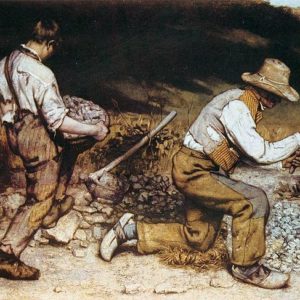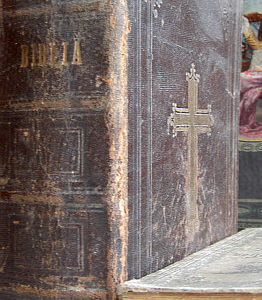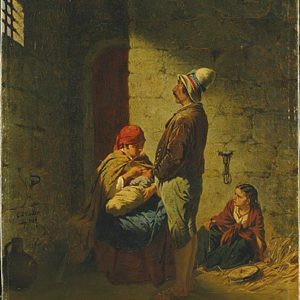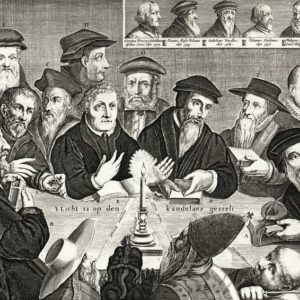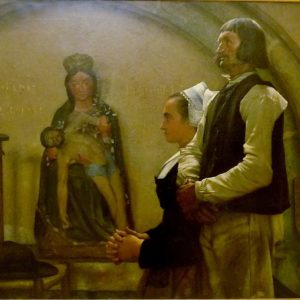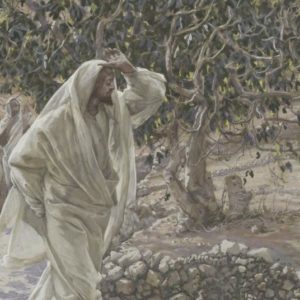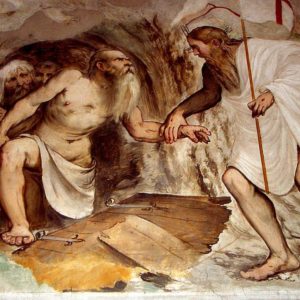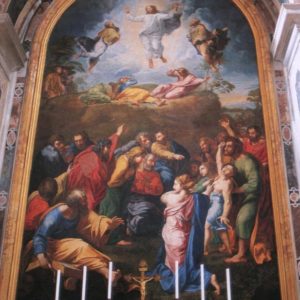That’s the title of a talk that I gave on July 19th to the Immaculata Young Adult Bible Study Group at the University of San Diego. The title comes from St. Athanasius, and is quoted in the Catechism to describe why the Incarnation happened: 460 The Word became flesh to make us “partakers of the divine… Continue reading “That Man Might Become God”
Category: Uncategorized
What is a “Just Wage”?
Come now, you rich, weep and howl for the miseries that are coming upon you. Your riches have rotted and your garments are moth-eaten. Your gold and silver have rusted, and their rust will be evidence against you and will eat your flesh like fire. You have laid up treasure for the last days.… Continue reading What is a “Just Wage”?
The Curious Case of the Protestant Bible
Perhaps no area in Catholic-Protestant apologetics involves as many outright falsehoods as the history of the Bible. To be sure, there are lots of theological topics on which Catholics and Protestants disagree, but for sheer number of popular Protestant arguments that are explicitly and undeniably false, nothing tops the question of where the Bible comes from… Continue reading The Curious Case of the Protestant Bible
What it Means to be Pro-Family
What does it mean to be “pro-family,” or to say that a child has a right to her mother and father? And what are the implications for the ongoing debates about immigration… as well as gay marriage, no-fault divorce, IVF, and the war on drugs?
Living as a Child of God: The Power of Petitionary Prayer
“Spiritual childhood” can sound like saccharine baby talk, in a way that most of us (particularly men) find unrelatable and even uncomfortable. After all, doesn’t St. Paul say “When I was a child, I spoke like a child, I thought like a child, I reasoned like a child; when I became a man, I gave up childish ways” (1 Cor. 13:11)? But we cannot just leave spiritual childhood to those who like being treated like children: it’s the only way to enter the Kingdom of Heaven. So how do we grow in this spirituality?
Most Protestants Are No Longer Protestant
Historically, two doctrines more-or-less defined Protestant theology: sola fide (justification and salvation are “by faith alone”) and sola Scriptura (doctrines are established “by Scripture alone”). But do Protestants today even believe in these doctrines? A fascinating pair of Pew surveys, marking the 500th anniversary of the Reformation, decided to find out by surveying large numbers of Protestants in the U.S. and in eight different Western European countries. The results were fascinating, and we Catholics ought to be paying close attention.
Does Prayer Change Things?
Does prayer change anything? And if so, is that a good thing? There are three major objections to consider:
First, that due to predestination, everything is set in place, and our prayers can’t change anything.
Second, that “prayer doesn’t change things; it changes me.” So the only one changed by prayer is me. After all, God is perfect and changeless.
Third, due to God’s omniscience and omnipotence (that is, that He knows everything and is all-powerful), His plan is perfect, so our prayers shouldn’t do anything. After all, we’re not going to tell God anything that He doesn’t already know, and we’re not going to have a better plan than the one He already has, right?
Why Does Christ Curse the Fig Tree?
One of the reasons cited by the British philosopher Bertrand Russell for (as he put it) Why I Am Not a Christian was this: Then there is the curious story of the fig-tree, which always rather puzzled me. You remember what happened about the fig-tree. “He was hungry; and seeing a fig-tree afar off having leaves, he came… Continue reading Why Does Christ Curse the Fig Tree?
Why is Christ the “Last Adam”?
St. Paul refers to Jesus as “the last Adam” (1 Cor. 15:45). What are the two ways in which we can we speak of Jesus as the new (or last) Adam? And who is His Eve?
Are Exorcists Biblical? (And if So, Why Don’t Protestants Have Them?)
Scripture is clear about the reality of demons, and about Jesus and the Apostles driving out demons. So why do Catholics have exorcists, and the vast majority of Protestants don’t? And what does Scripture have to say about the reality of demons, the distinction between evangelization and exorcism, and the ability of individuals to drive demons out?

